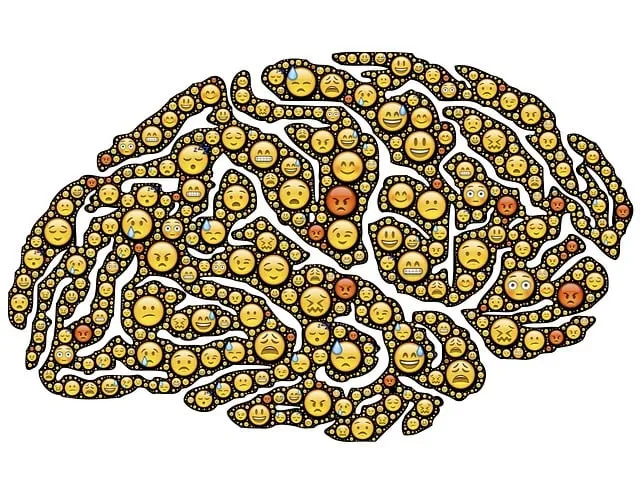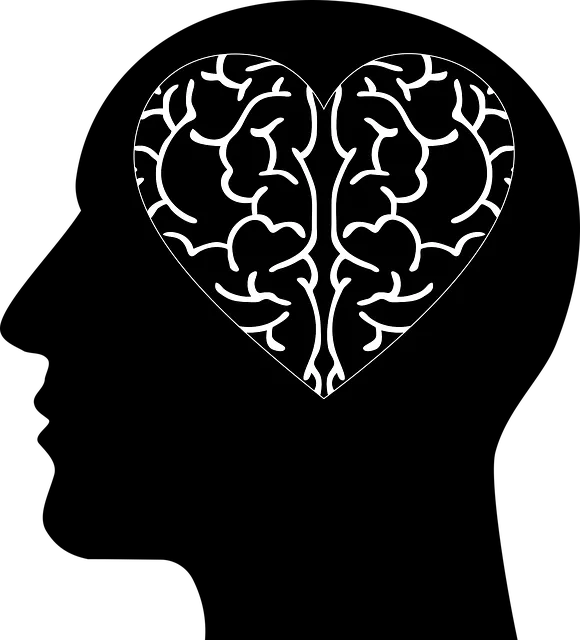Greenwood Village Kaiser's innovative mental health programs tackle diagnosis complexities by integrating advanced tools, trauma support, and conflict resolution techniques. They focus on holistic care through self-esteem improvement, journaling exercises, and cultural sensitivity, fostering resilience and long-term well-being. Utilizing data analytics, AI, and evidence-based practices, these programs enhance accuracy and patient-centered care, addressing burnout in healthcare providers. Continuous improvement driven by research and community feedback ensures tailored interventions and best practices for optimal mental health support.
Mental illness diagnosis accuracy is a critical aspect of patient care, and ongoing efforts are needed to enhance reliability. This article explores strategies to improve diagnostic precision, focusing on the comprehensive approach adopted by Greenwood Village Kaiser’s mental health programs. We delve into the complexities of mental illness, highlighting innovative tools, patient-centered care, and continuous improvement processes. By examining these initiatives, we aim to contribute to the global conversation on enhancing mental healthcare accessibility and effectiveness, specifically through the lens of Greenwood Village Kaiser’s successful mental health programs.
- Understanding the Challenge: Uncovering the Complexities of Mental Illness Diagnosis
- Greenwood Village Kaiser's Approach: A Holistic View of Mental Health Programs
- Innovative Tools and Techniques: Enhancing Diagnostic Accuracy
- Patient-Centered Care: Empowering Individuals in Their Journey
- Continuous Improvement: Learning from Research and Community Feedback
Understanding the Challenge: Uncovering the Complexities of Mental Illness Diagnosis

Diagnosing mental illness is a complex endeavor due to its multifaceted nature and the intricate interplay between biological, psychological, and social factors. Each individual’s experience with mental health conditions is unique, making accurate diagnosis a challenging task. The vast spectrum of symptoms, varying severity levels, and comorbidity—where multiple disorders coexist—add further complexity. For instance, what might be a telltale sign of depression in one person could differ significantly from another’s presentation, making differentiation between similar conditions intricate.
Greenwood Village Kaiser mental health programs recognize these challenges and employ various strategies to enhance diagnosis accuracy. They offer comprehensive assessments that go beyond traditional methods, incorporating advanced psychological tools, trauma support services, and conflict resolution techniques to gain a deeper understanding of an individual’s mental health landscape. By addressing the multifaceted nature of mental illness, these programs aim to foster positive thinking and facilitate more precise diagnoses, ultimately improving patient care and outcomes.
Greenwood Village Kaiser's Approach: A Holistic View of Mental Health Programs

Greenwood Village Kaiser stands out for its comprehensive and holistic approach to mental health programs. Instead of focusing solely on symptom management, their initiatives prioritize self-esteem improvement, trauma support services, and overall mental wellness. This multifaceted strategy involves not just treating symptoms but also empowering individuals with tools and techniques to navigate life’s challenges resiliently.
One notable aspect is the emphasis on mental wellness journaling exercises guidance. By encouraging patients to reflect on their thoughts, feelings, and experiences, Kaiser helps them gain deeper insights into their mental states. This practice fosters self-awareness, a crucial element in identifying triggers, managing stress, and promoting emotional balance. Ultimately, these innovative Greenwood Village Kaiser mental health programs aim to enhance long-term well-being and improve diagnosis accuracy by addressing the root causes of mental illness.
Innovative Tools and Techniques: Enhancing Diagnostic Accuracy

In the realm of mental health diagnosis, Greenwood Village Kaiser mental health programs have pioneered innovative tools and techniques aimed at enhancing accuracy. These efforts reflect a broader trend in the industry to move beyond traditional methods, incorporating advanced technologies and evidence-based practices. By leveraging data analytics and artificial intelligence, healthcare professionals can now identify subtle patterns and correlations that were previously undetectable, leading to more precise diagnoses. For instance, machine learning algorithms can analyze vast amounts of patient data, including medical history, genetic information, and behavioral trends, to predict mental health conditions with remarkable accuracy.
Beyond technological advancements, cultural sensitivity in mental healthcare practice has emerged as a critical component of improving diagnostic accuracy. Understanding the diverse cultural backgrounds of patients enables healthcare providers to tailor their approaches, ensuring that symptoms are interpreted accurately within the context of each patient’s unique experiences and beliefs. This approach not only enhances diagnosis but also fosters better patient engagement and treatment adherence. Additionally, burnout prevention strategies for healthcare providers are integral to maintaining high standards of care. By addressing provider well-being, these strategies ultimately contribute to improved mental health program outcomes, as refreshed and resilient professionals can offer more focused and effective support.
Patient-Centered Care: Empowering Individuals in Their Journey

In the pursuit of enhancing mental illness diagnosis accuracy, a patient-centered care approach is revolutionizing the landscape at Greenwood Village Kaiser’s mental health programs. This method places the individual at the heart of their treatment journey, fostering collaboration and empowering them to actively participate in their mental healthcare. By encouraging open communication between patients and mental health professionals, these programs facilitate a shared understanding of symptoms, triggers, and treatment goals. Such an approach not only improves diagnostic accuracy but also strengthens the therapeutic alliance, leading to better adherence to treatment plans.
This patient-centric paradigm integrates effective communication strategies and emotional well-being promotion techniques into the core of care delivery. Mental health professionals are trained to create safe, non-judgmental spaces where patients can freely express their experiences and concerns. This not only enhances information gathering but also builds trust, a crucial element in encouraging individuals to seek help and maintain consistent treatment. Moreover, these strategies complement Risk Management Planning for Mental Health Professionals by reducing potential barriers to accurate diagnosis, such as miscommunication or patient resistance.
Continuous Improvement: Learning from Research and Community Feedback

At Greenwood Village Kaiser mental health programs, we recognize that continuous improvement is essential for enhancing diagnosis accuracy and patient care. We actively learn from ongoing research and community feedback to refine our practices. By staying abreast of the latest scientific findings, we ensure our healthcare providers are equipped with the most up-to-date knowledge and skills. Additionally, engaging with the community allows us to understand diverse perspectives, cultural nuances, and unmet needs, which informs tailored interventions.
This commitment is evident in our Healthcare Provider Cultural Competency Training initiatives that foster self-awareness exercises designed to address implicit biases. By promoting cross-cultural understanding, we improve interactions between providers and patients from various backgrounds, leading to more accurate assessments and personalized treatment plans. Furthermore, integrating strategies for Depression Prevention into our programs reflects a proactive approach to mental health management, ensuring early identification and intervention.
Mental illness diagnosis accuracy is a multifaceted challenge, but with innovative tools, holistic approaches like those seen in Greenwood Village Kaiser’s mental health programs, and patient-centered care, significant improvements are achievable. Continuously learning from research and community feedback ensures that these efforts remain effective and tailored to evolving needs. By integrating these strategies, we can enhance diagnostic accuracy, empower individuals in their journeys, and foster healthier communities.






